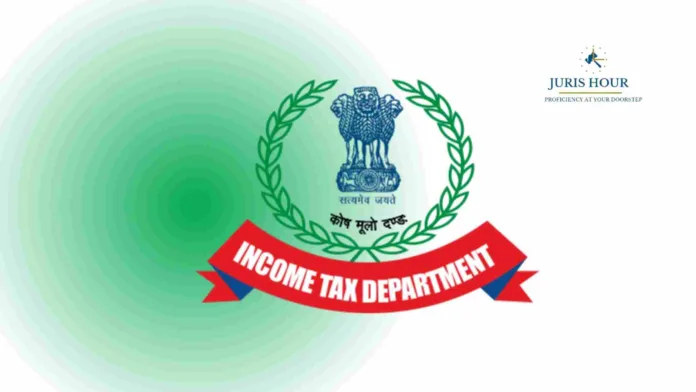Phishing Scam Targets ITR Filers Amidst Tax Season Rush
The Income Tax Department of India has sounded an urgent warning to taxpayers across the country regarding a wave of fraudulent emails falsely claiming there has been an “error in tax calculation” following Income Tax Return (ITR) submissions.
The scam has surfaced just days after the due date for filing ITRs for Assessment Year 2025–26, targeting unsuspecting filers with seemingly legitimate-looking emails that mimic official correspondence from the tax department.
📢 Official Warning from @IncomeTaxIndia:
“Kind Attention Taxpayers! If you’ve filed your Income Tax Return & received an email stating that there has been an error in calculating your tax… please DO NOT click on any link. This is a phishing email.”
(Posted via Income Tax Department’s official X handle: @IncomeTaxIndia)
Details of the Phishing Scam
According to multiple tax professionals and early recipients of the email, the phishing message is sent from an unofficial and deceptively formatted sender ID, often resembling:
- donotreply@incometaxindiafilling.gov.in
(⚠️ Note the misspelling: “filling” instead of “filing”)
The email typically includes alarming phrases such as:
- “There is a discrepancy in your filed return.”
- “Error in tax calculation detected.”
- “Click here to revalidate your submission.”
A clickable malicious link or button is embedded, which, when clicked, may:
- Redirect users to a fraudulent site resembling the official income tax portal.
- Collect personal data such as PAN, Aadhaar, bank credentials, or e-filing passwords.
- Download malware onto the user’s device.
Why This Phishing Scam Is Especially Dangerous Now
1. Timing
The scam is striking at a critical period—immediately after the ITR deadline—when millions of individuals are awaiting tax refund notifications or intimations from the IT Department.
2. Psychological Manipulation
By falsely indicating an “error,” the email creates a sense of urgency and fear of penalty or delay in processing returns—coercing users to act without scrutiny.
3. Visual Authenticity
The email design mimics official communication using government-style formatting, color schemes, and language, making it hard for an average taxpayer to spot the fraud.
How to Identify and Avoid Phishing Emails
| Signs of a Phishing Email | What You Should Do |
|---|---|
| Email domain with spelling errors or extra characters | Always verify sender’s email address before clicking |
| Generic greetings like “Dear Taxpayer” | Official I-T communications mention your name and PAN |
| Urgent calls-to-action with links | Never click on unknown links. Visit www.incometax.gov.in directly |
| Threat of penalties or missed refunds | Cross-check any discrepancies on the official e-filing portal |
| HTML links that don’t match visible text | Hover over links to inspect destination URL |
Income Tax Department’s Official Communication Channels
To stay protected, taxpayers are encouraged to trust only the following:
- Official Website: www.incometax.gov.in
- Helpdesk: 1800 103 0025 / 1800 419 0025
- Email: ask@incometax.gov.in
- Verified Social Media: @IncomeTaxIndia on X
What to Do If You Receive a Suspicious Email
If you’ve received such an email:
- Do not click on any links or download attachments.
- Do not share any personal or financial details.
- Report the email by forwarding it to phishing@incometax.gov.in and incident@cert-in.org.in.
- Delete the email from your inbox and trash folder immediately.
Conclusion
As cybercrime becomes more sophisticated, especially around financially sensitive periods, citizens must stay alert. The recent phishing campaign targeting Indian taxpayers is a grim reminder of the need for digital vigilance, cyber hygiene, and reliance on verified communication channels.
The Income Tax Department has taken proactive steps to alert the public—but the onus remains on individuals to identify threats and protect their data.
Stay safe. Stay informed. Report fraud.
Read More: Income Tax Dept. Gets High Court Backing on Reopening Old Assessments Under New Regime

